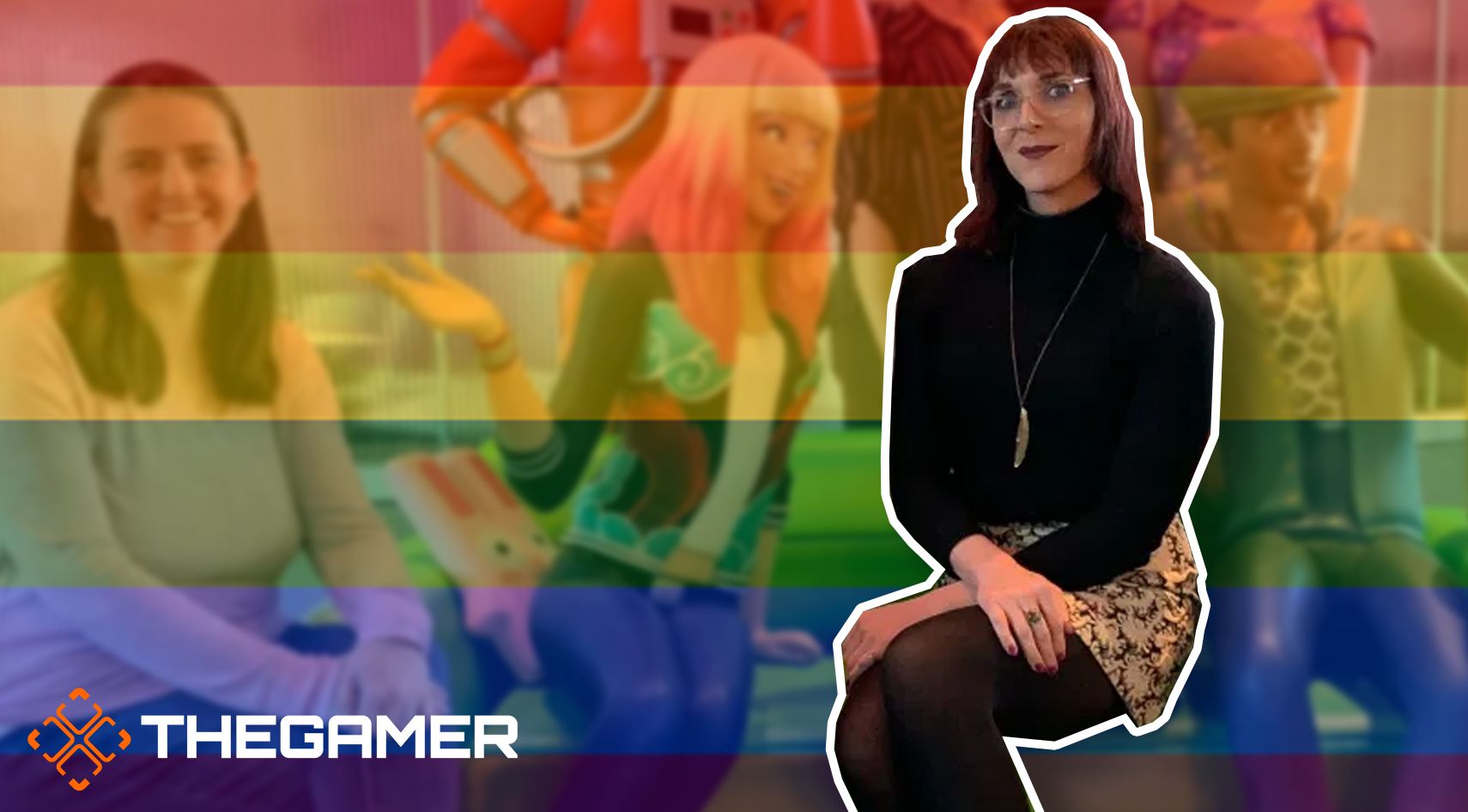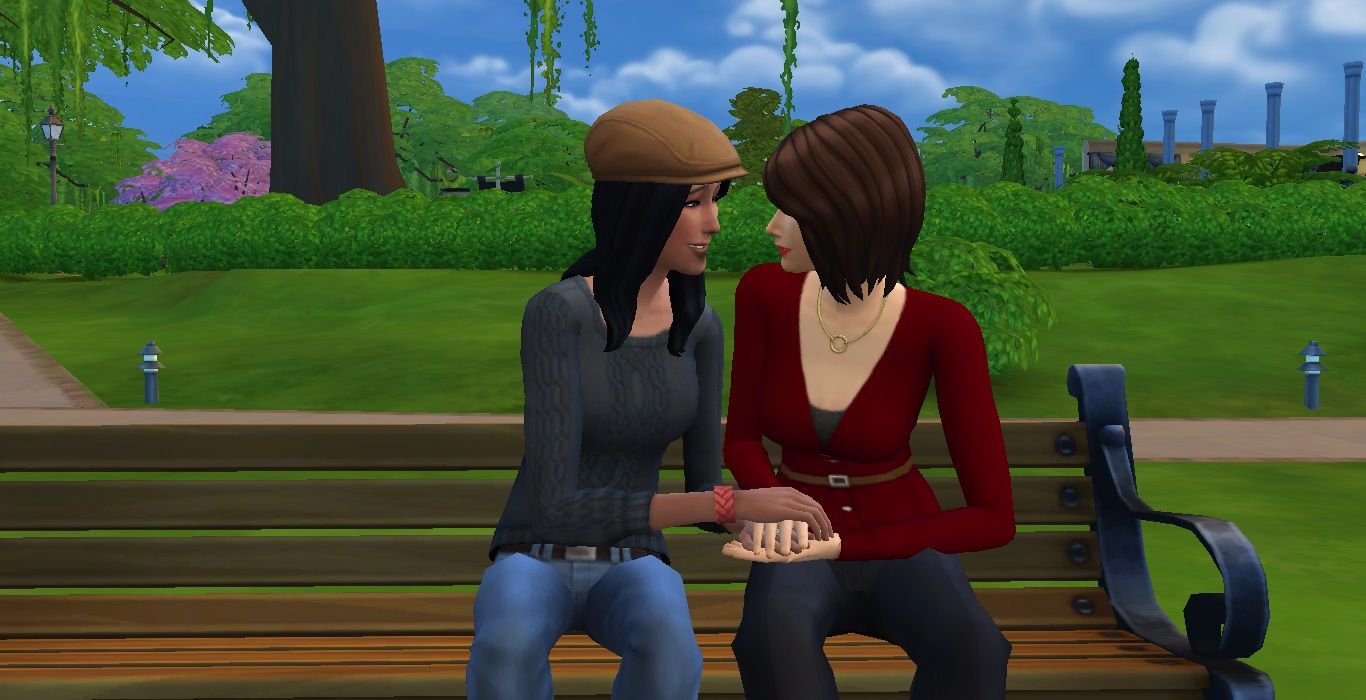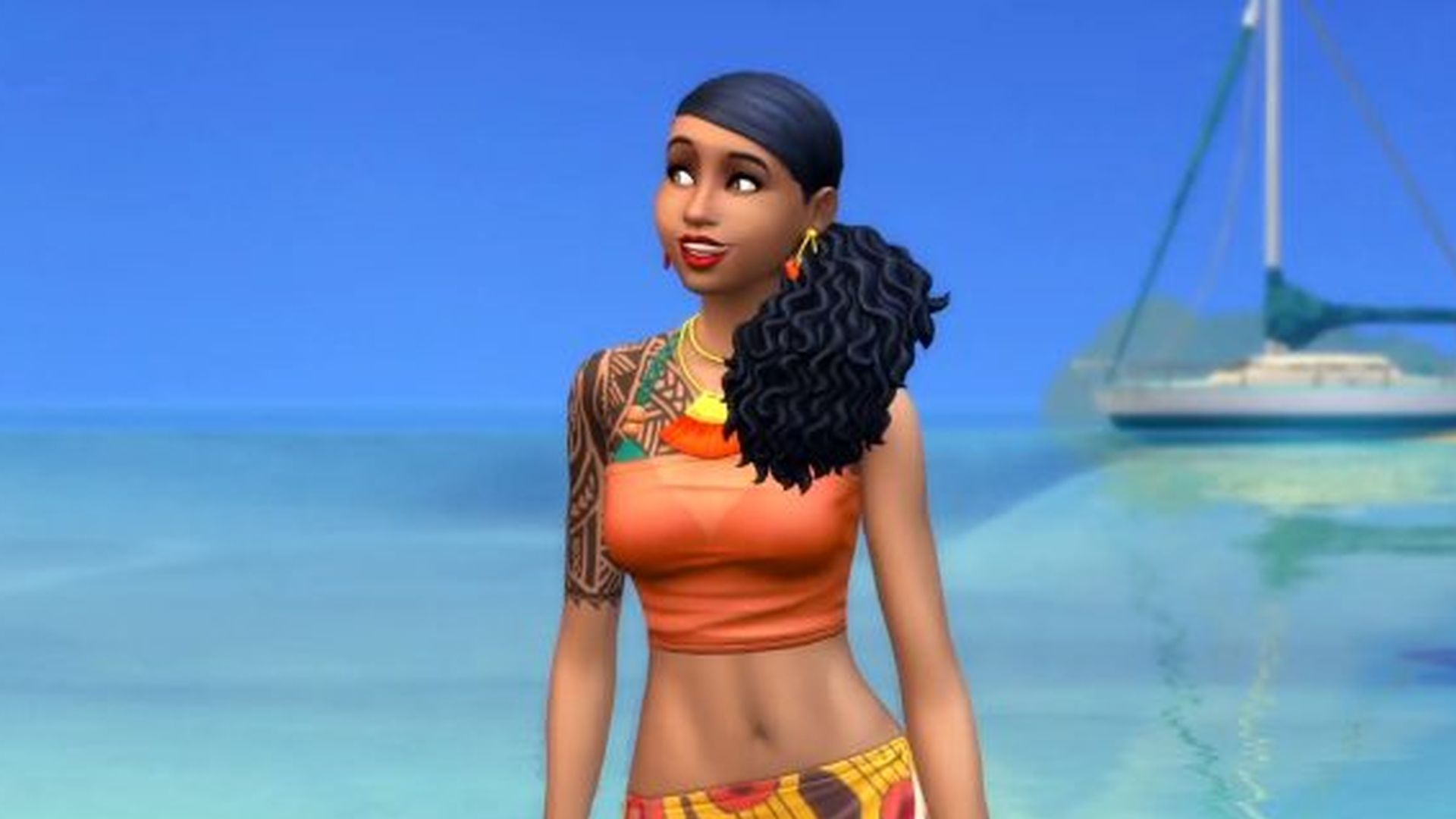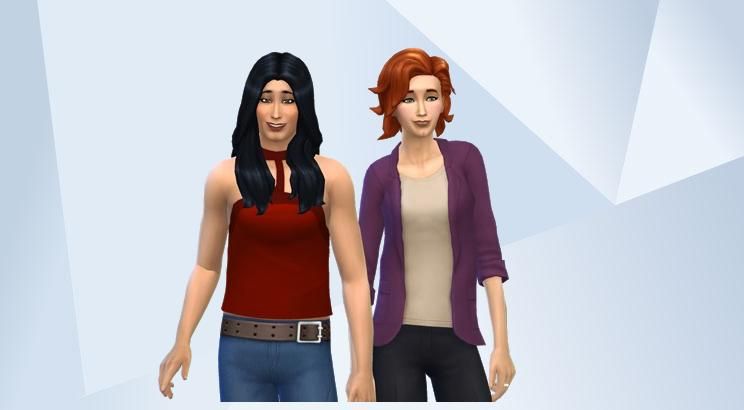Chloe Carter has been making waves at EA with The Sims 4 for nearly seven years now as both the global comms lead and the lead cinematic artist, giving an authentic voice to transgender people from behind the scenes. That's something that more studios need to do, because, for many in the LGBTQ+ community, Carter's story is their own, "When it came to understanding my identity as a trans woman, in my early life... basically I didn't."
"There is no shortage of LGBTQIA+ folks who have used The Sims to live out a life they couldn't yet achieve publicly," Carter says, "Perhaps it isn't safe to be out where they are, perhaps they're uncertain and need a playground to figure things out. I think it's beautiful our game can provide this, and all the more reason to ensure the experience is more accurate and more meaningful." The Sims 4 provides that platform for people, advertising itself as a safe haven, with LGBT couples on the cover art, and LGBT options readily available in the game - they're as easy to find as hair color, and avoid stereotypes or outdated, offensive, and harmful tropes.
"All we need to do [to avoid those tropes] is create the tools to let players customize freely. Our job is sort of to remove those barriers," Carter says, "From a marketing perspective, I think our job in game trailers and the cover art is to not stick to the same old stereotypes and to not fall into the trap of representing queerness as a thin, white, cisgender-normative, middle/upper-class phenomenon. It’s not only handsome white dudes holding hands, the community is so diverse! I think we’ve got a ways to go, I’d like us to start showing more gender non-conforming Sims on our cover art and in trailers.
"A big struggle with this kind of media is that you’re trying to make a character read as visually queer, without getting into stereotypes, which is a bit of a paradox. In reality, this paradox is just part of life. Identity isn’t easily quantified, it’s fuzzy around the edges. But for example, how do you claim non-binary representation for a masculine-presenting character without just seeming like you’re tacking it on after the fact for woke points? Then if you create an androgynous character you’re falling into the trap of equating non-binary with androgyny. There’s no easy answer, and one of the ways we solve this is simply through volume of queer representation. There’s always another pack, another video, we can hit a different note next time."
The reason Carter is so dedicated to giving LGBTQ+ people a platform, a voice, and a means to express themselves stems from her own experiences, "Being trans is a big motivator. One thing that often bugs me about (what little) trans representation we have, is that it skews to cisgender-normative body types. That’s what folks find palatable. But there are things about my body that will never fit that mold, even if I wanted to change it. There are no surgeries for my ribcage circumference, hand size, foot size, shoulder width, etc. I wanna make space for the broad-shouldered girls. I want to make space for the women with pronounced brow ridges, the short curvy guys, and everyone else!
"Growing up in the 90s trans representation was 99.999% of the time the butt of a joke or a similar target of disgust. Hell, it still is. I sat down to watch a random comedy special the other night and in the first five minutes there was a transphobic joke, met by a room of laughter. This was a recently filmed special too. Like… what the fuck? I picked it because I watched the preview and thought, 'Hey I can relate to this person', and then comes this slap in the face. It’s just everywhere. I want to see more trans bodies that look trans (whatever that means). Not to shame cis-passing trans bodies as a reaction, but to make space for the beauty of all trans bodies. I mean big shoulders are hot, c’mon."
While The Sims 4 is at the forefront of LGBTQ+ representation in gaming, often being touted as the best in the industry for it, the world of triple-A isn't quite up to speed with EA's hit simulation game. Granted, there are those out there pioneering, and that deserves to be commended, whether it's The Last of Us Part 2 or Life is Strange, but these are outliers, and it needs to become the norm, not an occasional addition. "We've got quite a ways to go," Carter puts it, "It’s much easier for us on The Sims because the entire game is about possibilities, about diversity. When folks are making a piece of media revolving around a singular hero character, it becomes much more difficult for people to want to take the (perceived?) risk of alienating their audience.
"And even if a significant character is queer, they generally still fall into the hetero/cis passing norms that folks find more palatable. Again, you run into the challenge of stereotypes on the other end of the spectrum if you swing toward 'looks queer'. Honestly, I think the biggest need in LGBTQ+ representation in gaming is simply more of it! Any representation we have now gets put under a microscope because, one there’s so little representation, two most of that little is bad, and three the fact that there is so little means any one attempt at representation is going to have an outsize impact. I want imperfect queer characters! But, we’re still fighting decades of ingrained villainization which seeps its way into everything from fiction to politics, so we kind of have to skew toward strictly positive representation now."
The unfortunate side of pushing for LGBTQ+ representation, however, is that risk or fear that developers face when it comes to including LGBTQ+ characters or stories - the backlash on social media. There's still a stigma, an 'anti-woke' sentiment that bogs down every move that's made, and perhaps that's what scares away companies from taking that perceived risk. Hell, Star Wars was lambasted for its "LGBTQ+" representation in The Rise of Skywalker which was a blink-and-you-miss-it kiss between two extras. "I’m always worried about [backlash]," Carter says, "But as a trans woman it’s something I worry about in my life as well. While being visible is a privilege, I also don’t necessarily think there is safety in hiding. We tried that as a community for a long time and certainly weren’t treated any better for it. We need to be out in the open, we need to be 'normalized', although I’m not in love with that word. People need to get used to us. We exist and we have every right to do so. For me, I feel it as both a moral obligation and a matter of survival. As a moderately cis-passing white trans woman, I’m vastly more privileged than most trans folks. I see it as my job to be visible and make noise for people who can’t. I’m glad we’re doing that on some scale with The Sims."
The Sims 4 doesn't exist in a void, though - plenty of other media, be it TV, film, or gaming has tried their hand at representation. There are probably more bad than good in that pool, whether it's GTA's toxic masculinity in its characters with jokes and dialogue that poked fun at LGBT people or the swath of transphobic jokes that persist even today, but there has been some good, and naturally, that good will inspire others. "A few of my favorite bits of trans representation are Jules in Euphoria and Bex in Assassination Nation. Both can be harsh stories to watch, but what I loved was that the character’s transness wasn’t centered," Carter opens, "While it was certainly part of the story, they were each just one of the girls. My relationships with my cis women friends were one of the very important things to me that I was worried would change when I came out. If anything those relationships are better now, and I wish I would have known that was a possibility. Trans representation tends to fall into extremes: at one end you have the tragedy and or villain, and at the other a glittering star.
The former is not desirable, the latter is (for most) unattainable. Like, I just wanted to see trans people at the laundromat or grocery store. Just living their lives without having to be a paragon of excellence and glam at every second. To be clear, I love Laverne Cox, Janet Mock, Trace Lysette, Indya Moore, MJ Rodriguez, and all the amazing folks on Pose! I love that they shine so bright, they deserve what they have, they are making space and doing amazing work in the community. At the same time, it can feel hard to live up to that. They are exceptional and I hope to have even a fraction of the impact they do, but we all need space to be human too - all those lovely glittering trans/non-binary folks included! This is where maybe we can have a unique impact. The Sims revels in the 'mundane' parts of life, and elevates them. Players have voted on two-pack themes for The Sims 4. The first time they chose Laundry, the second time Knitting. Some of the most euphoric moments of being trans are the mundane ones. Just to be present and whole in your own life, showing up authentically, can make the most uninteresting and repetitive aspects of life seem so, SO beautiful. I mean yes we have aliens and vampires in The Sims, but it’s the intersection of that and the unexceptional life-managing tasks that make it interesting."
The more good representation that's on offer, the more genuine, real depictions that come forth, the more that others will be inspired to follow suit, the more that the backlash will be whittled down into nonsensical internet trolls easily ignored, and the more that LGBTQ+ people will feel included - accepted. That's what's ultimately so important about bringing LGBTQ+ people into these stories in a way that isn't bigoted, stereotypical, trope-ridden, or pushed aside and easily ignored. "I hope that the more time people spend with themselves in the game, the more they will grow to love that person and to believe that person can and does have a future," Carter says, "I also want people to know they have a voice, and to use it! Black Simmers have kept us honest about things like skin tones and hairstyles, and I’m glad they did. We want to come correct here. And yeah, there are business reasons to do that, but speaking personally, and through my interactions with other folks on The Sims team, we really do care about making the game a place where everyone can see and be themselves, and play around with who they might be. Yeah, we’re sometimes bummed when we don’t get it right, but we’d be more bummed about not trying to make it better. I suppose what I really want LGBTQ+ players to take away from The Sims is that they matter."




